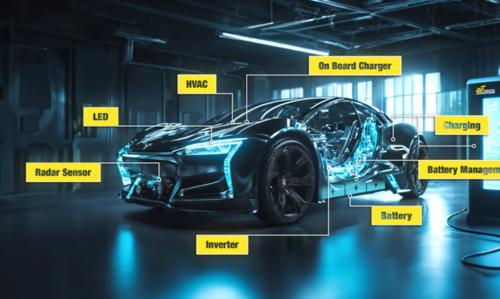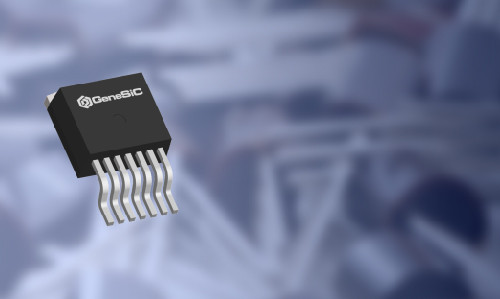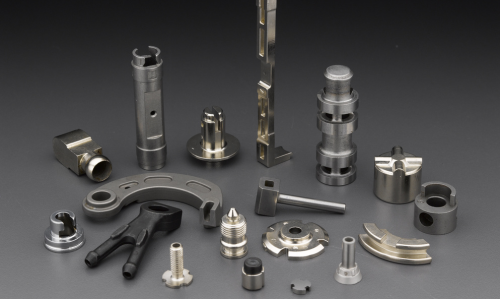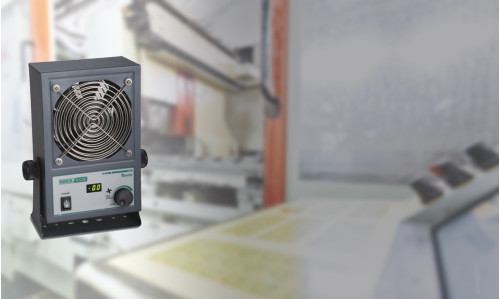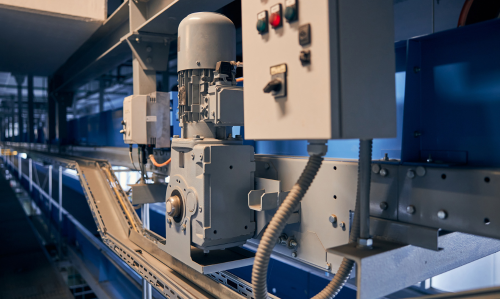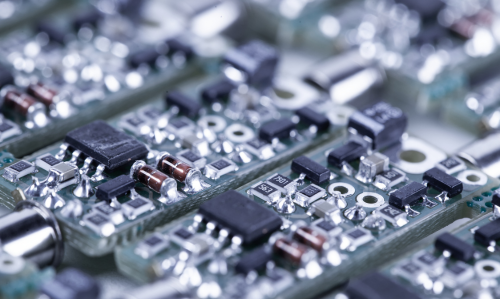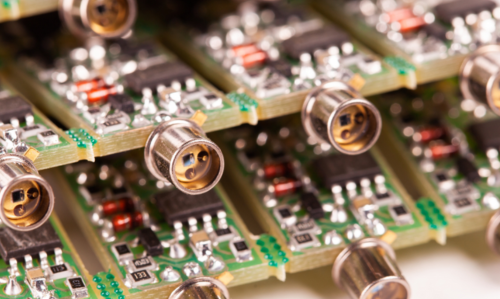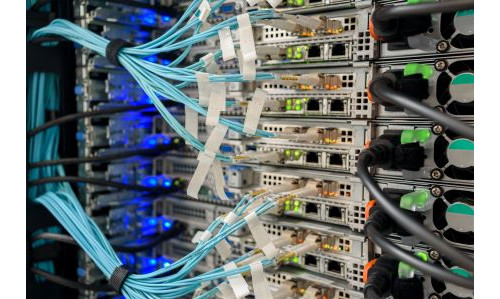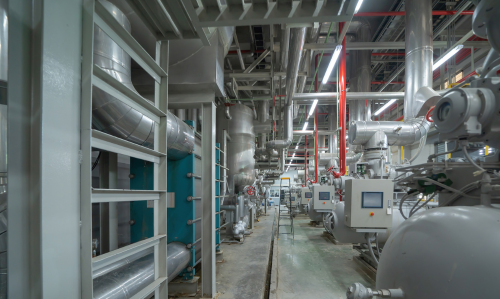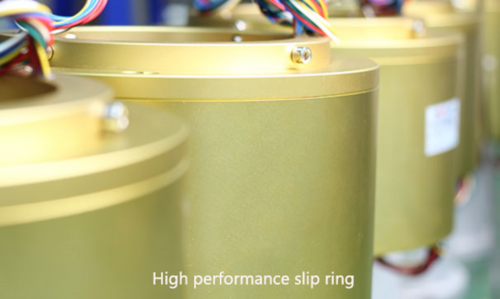Efficient Power Conversion Corporation (EPC), a leader in gallium nitride (GaN) transistor technology, has introduced an innovative reference design – the EPC9178. This groundbreaking product redefines standards in solar system optimization, offering exceptional energy efficiency, reliability, and cost reduction.

News
-
Efficient control of underfloor heating with SET 31 - The key to comfort and savingsRead more
The SET 31 underfloor heating control kit is an innovative solution that addresses the growing needs of modern homes for efficient temperature management. With advanced technology, the system allows for precise heating control, which translates to increased user comfort and significant energy savings. In this article, we will discuss how the SET 31 kit can help optimize underfloor heating and why it is worth investing in.
-
Stella 230V NC actuator - Modern solution for efficient floor heatingRead more
In recent years, rising energy costs and increased ecological awareness have led consumers and businesses to seek more efficient heating solutions. One of the most popular ways to save energy, especially in modern construction, is through the use of underfloor heating systems.
-
What are thermal conductive materials?Read more
Thermal conductive materials are substances that efficiently transfer heat, used in various industries such as electronics, automotive, and energy. These include ceramic, metallic, and organic types, which play a crucial role in heat management, enhancing device performance, and advancing modern technologies.
-
How to Choose the Right Portable Case for Electronic Equipment?Read more
Mobility and safety of electronic equipment are crucial, making the choice of the right portable case an important task for many professionals. Whether you are an engineer, technician, artist, or technology enthusiast, the right case will help you safely transport your equipment. In this article, we will discuss the key factors to consider when choosing a case and why it is worth trusting the experience of DACPOL.
-
SiC Schottky MPS™ DiodesRead more
A novel GeneSiC Merged-PiN Schottky design combines the best features from both PiN and Schottky diode structures, producing the lowest forward voltage drop (VF), high surge-current capability (IFSM), and minimized temperature-independent switching losses.
-
Technical ceramics for metal injection molding processesRead more
Metal Injection Molding (MIM) is an advanced metal forming technique that combines the advantages of plastic injection molding and powder metallurgy. This process allows the production of complex metal parts with high precision and excellent mechanical properties.
-
Photovoltaics and Energy StorageRead more
Photovoltaics plays a crucial role in delivering clean electrical energy, but one of its challenges is the production instability resulting from weather conditions.
-
What are air ionizers and how do they work?Read more
Air ionizers are devices that play a crucial role in improving indoor air quality. With their ability to remove pollutants and enhance breathing comfort, they are becoming an increasingly popular choice among people who care about health and indoor living comfort. In this article, we will take a closer look at what air ionizers are and how they work to provide clean and fresh air in our homes, offices, and industry.
-
Risk assessment and explosion risk assessmentRead more
An integral part of each explosion risk and risk assessment, which in turn is often an element of the Explosion Protection Document, is a summary containing conclusions regarding the recommended changes and procedures in conditions of explosion hazard. On the example of one of the explosion risk assessments prepared for the mill together with the grain transporting and storage installation, you can create a set of recommendations assigned to the so-called layers of prevention and protection....
-
The Superiority of Rotary Joints: Future Technology in the Electromechanical IndustryRead more
In today's dynamic industrial world, where innovation is key to success, reliability and efficiency are essential qualities of any electromechanical device. Among the tools revolutionizing the way electrical signals are transmitted on rotating elements are rotary joints. Let's delve into why rotary joints are the technology of the future in the electromechanical industry.
-
Introduction to Semiconductors in an Industrial ContextRead more
Semiconductors are an essential component of many electronic devices that we encounter daily in various industries. But what exactly are semiconductors and why are they so important for the industry?
-
How does the transistor work and what is it used for?Read more
The transistor is a semiconductor device that plays a crucial role in modern electronics. Its invention in the mid-20th century by William Shockley, John Bardeen, and Walter Brattain brought about a revolution in technology. Transistors are essential in the construction of many electronic devices, from simple relays to advanced computers. In short, a transistor is a fundamental building block that enables the control of current flow in electronic circuits.
-
What is a network switch and what are its uses?Read more
In today's digital world, where communication and data exchange play a crucial role, computer networks have become an integral part of our lives. With the advancement of technology, devices that enable efficient information transmission in networks are gaining increasing importance. One of these key devices is the network switch.
-
What is a heat sink? Types and applications of heat sinksRead more
A heat sink is a component whose main purpose is to dissipate excess heat from electronic circuits to prevent components from overheating. It is a thermally conductive design that enables the accumulated thermal energy to be dissipated efficiently.
-
Przewaga pierścienia ślizgowego przelotowego nad innymi formami pierścieni ślizgowychRead more
Pierścienie ślizgowe są ogólnie klasyfikowane pod względem funkcjonalności i cech projektowych. Ogólnie rzecz biorąc, tradycyjny pierścień ślizgowy zawiera najbardziej podstawową wersję technologii pierścieni ślizgowych, która nie pozwala na zmianę fizycznej struktury pierścienia ślizgowego zgodnie z potrzebami sprzętu. Co więcej, zmiany projektowe mają na celu nie tylko zwiększenie funkcjonalności pierścienia ślizgowego, ale także uproszczenie procesu instalacji. Istnieje wiele nowoczesnych...
-
The NANUK AdvantageRead more
With a meticulous commitment to quality and a deep understanding of user needs, NANUK stands as a testament to excellence in safeguarding your valuable assets. Explore the myriad ways NANUK sets itself apart in the realm of case protection.
-
Consequences of an Inverter Failure for the Entire Photovoltaic InstallationRead more
Photovoltaic installations are gaining increasing popularity as an environmentally friendly source of electrical energy. The key element in these systems is the inverter, which converts solar energy into alternating current ready for use in households or businesses. The inverter plays an irreplaceable role, but what happens when it fails? In this article, we will discuss the consequences of an inverter failure for the entire photovoltaic installation and ways to manage these potential issues.







